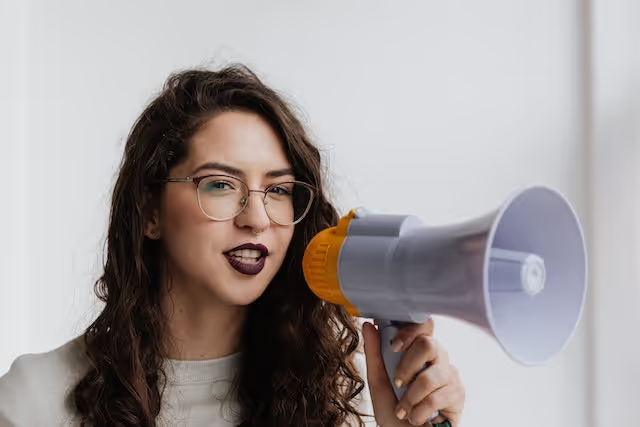10 ABA Therapist Interview Questions & Answers
Find a list of common ABA therapy interview questions and answers.

Common ABA Therapy Interview Questions
- What type of experience do you have that is most related to the specific position?
- What is your educational background?
- What professional experience do you have related to the job position?
- What types of reinforcement techniques have worked in your experience?
- Do you have any experience working in situations with animals?
- Describe a particular trying case you have worked on and explain how you handled it.
- Why did you choose to specialize in ABA therapy?
- How do you stay informed about the different developments in the ABA therapy field?
- Can you explain an experience where you had to convince a caregiver or parent on treatment for their child or children?
- What did you like most about your most recent or current job?
Whenever you are applying for an ABA therapist position, either at a clinic or with a potential client, there are three main questions that you should expect and be ready to answer.

1. What type of experience do you have that is most related to the specific position?
When asked this question, the interviewer is wanting to know what makes you a good fit for the position you are applying for. When answering this question, you should include your experience with specific age groups you have worked with.
You can also include the types of developmental disabilities that you have worked with. Knowing how your experience relates to the specific job is crucial to the interviewer.
2. What is your educational background?
To be an ABA therapist, you will need to have a higher education degree. For instance, if you wish to be considered a BCaBA or a BCBA, you are expected to have an undergraduate degree, and if you are going to be a BCBA, you need at least a master's degree.
Most employers will not be looking at this information to judge where you chose to go to school, but they want to see the path you chose and how your education relates to your current certifications.
3. What professional experience do you have related to the job position?
Interviewers can learn a lot about you from your education choices, but your experiences are also important. When trying to qualify for board certification exams, it can be helpful to combine your education and professional experiences.
They will also use this question to find out more about you personally, and why you chose to go into ABA therapy. After all, it takes a certain passion to work with children with behavioral issues.
Other Questions You Might Encounter At An ABA Therapist Interview
Education, professional experience, and credentials are important but an interviewer will also have some other questions that will help make their decisions. Here are a few that you might encounter.
4. What types of reinforcement techniques have worked in your experience?
When getting a job as an ABA therapist, a business will want to make sure that the way you create your treatment plans will align with their model. It is important to know the types of techniques that you like to use with your clients.
You should be able to provide examples of how you use these techniques in situations, as well. The answer to this question is subjective, depending on the position you are applying for and the place you are trying to work.
5. Do you have any experience working in situations with animals?
Many times when you work with people with autism, you will have to deal with pets in the home because emotional support animals are a common practice for people with autism.
Therefore, you should express any sort of experience and or fears of animals that you might have. This will help your employer to understand the types of clients you should work with and if you are equipped to work in homes where animals might be present.
6. Describe a particular trying case you have worked on and explain how you handled it.
When interviewers ask this question, it is to gauge three main areas: communication skills, problem-solving skills, and experience. It's not a bad idea to have a situation or case prepared that will fit this type of question.
It will keep you from stumbling while trying to think of a case. This is especially useful if you have a lot of cases to sift through in your mind or if you have a few cases to pull from and need to gather your thoughts on how you handled the situation.
7. Why did you choose to specialize in ABA therapy?
Interviewers will often ask you this question because ABA therapy does take a certain type of personality to properly provide. It will reveal your motivations and intentions for why you want to be an ABA therapist, which can show them if you are the right fit for their business.
8. How do you stay informed about the different developments in the ABA therapy field?
When being interviewed for a position as an ABA therapist, the interviewer will want to know that you keep up in a constantly changing area of expertise.
To answer this question, you should tell them about your research and what you do to keep up with the latest ABA techniques to show your knowledge and that you have an understanding of ABA principles that will make you a good fit for the position.
9. Can you explain an experience where you had to convince a caregiver or parent on treatment for their child or children?
Convincing parents of treatment can be one of the most difficult parts of an ABA therapist. Therefore, an interviewer will ask this question to see how you would handle interactions with parents, not just the child you will be working with.
10. What did you like most about your most recent or current job?
Regardless of the reasons you left your prior position, it is important to find positive aspects about that job when answering this question. The answer to this question can also help the interviewer to understand how you might handle being on street or in a negative situation.
References
Recent News
Related articles

Working With Autistic Children: 10 Career Options
Want to work with autistic children? Here are 10 career options for you to consider.

What Is The Age Limit For ABA Therapy In Indiana?
Find out what the age limit is for receiving Applied Behavior Analysis (ABA) therapy in Indiana.

What Is The Age Limit For ABA Therapy In Arizona?
Find out what the age limit is for receiving Applied Behavior Analysis (ABA) therapy in Arizona.

Verbal Operants In ABA: Definition & Examples
In Applied Behavior Analysis, verbal operants are a type of verbal behavior.

Token Economy: Examples & Applications in ABA
A token economy is a procedure that was developed to help reduce maladaptive behaviors and increased desire behaviors by providing a tangible conditioned reinforcer.

Trigger Analysis In ABA: Definition & Examples
Trigger analysis is a segment of ABA therapy where children are taught by therapists to pinpoint the behaviors and emotions that happen before, during, and after an event that takes place.

Variable Ratio Schedule & Examples
A variable-ratio schedule is a random reinforcement where responses are reinforced following varied responses afterward.

Task Analysis In ABA Therapy: Examples & Strategies
Task analysis is a process of teaching that divides complicated activities into sections involving easier steps for students to more easily take.

Stimulus Equivalence In ABA: Definition & Examples
Stimulus equivalence shows how relationships can manifest among different types of stimuli in different situations.

Speech Therapy For Autism: ABA vs. Speech Therapy
ABA therapy can help individuals with speech impairments learn to better identify and utilize the language skills they already have.

Stimulus Control Transfer ABA: Definition & Examples
Stimulus control is defined as an expression used to detail circumstances where a behavior is triggered by the existence or absence of a stimulus.

Social Validity In ABA: Definition & Examples
Social validity is the acceptance of interventions concerning behavioral changes.

